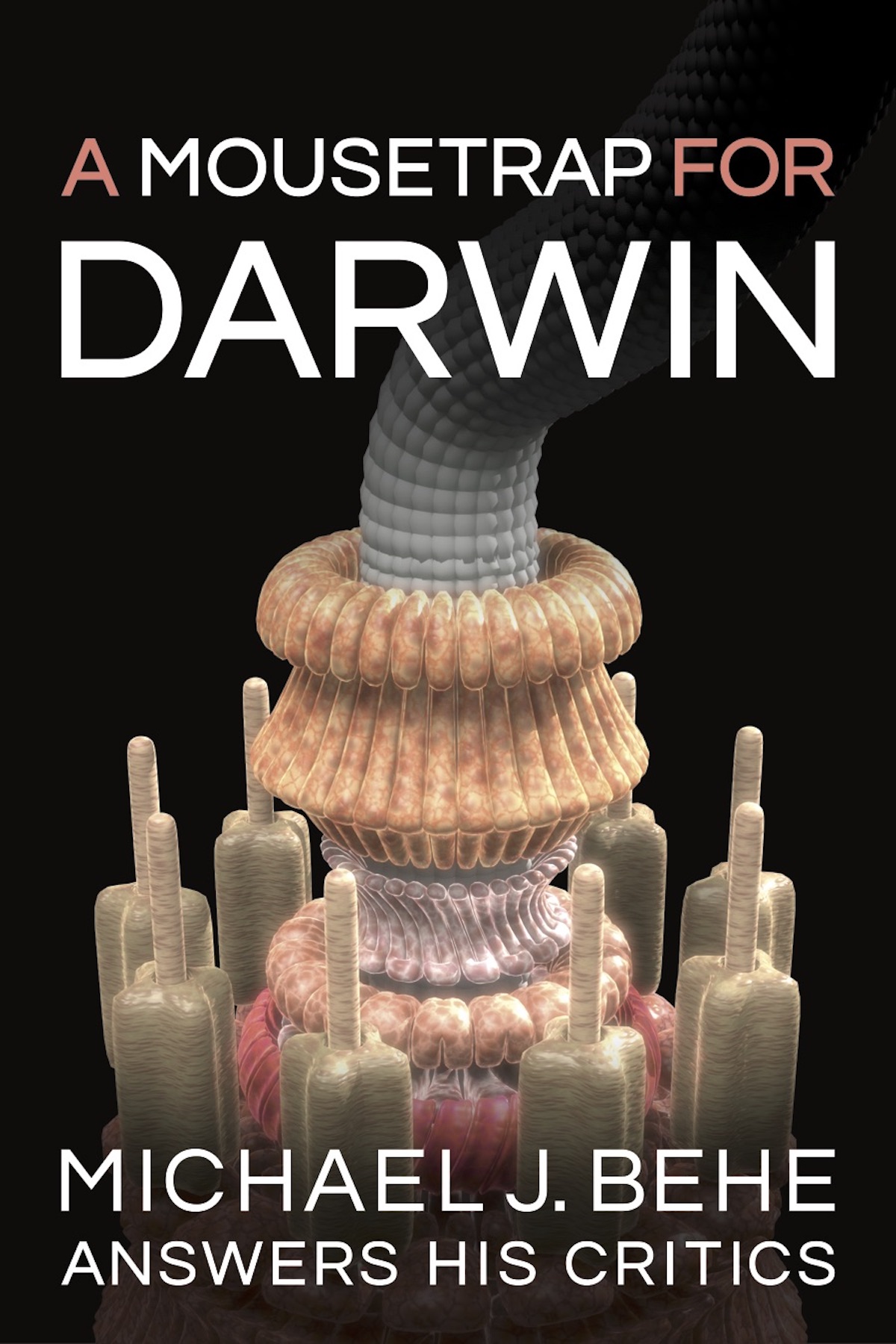 Evolution
Evolution
 Intelligent Design
Intelligent Design
November: In a New Book, Michael Behe Springs a Trap for Darwin

In 1996 Darwin’s Black Box thrust Michael Behe to the forefront of the budding intelligent design movement. The Lehigh University biochemist and Discovery Institute Senior Fellow has haunted the dreams of Darwinists ever since. Each of his three books sparked a firestorm of criticism, in everything from the New York Times and the journal Science to the private blogs of professional atheists. Behe says he has had fun rebutting each attack. And now the bulk of his responses are collected in a A Mousetrap for Darwin, scheduled for release next month from Discovery Institute Press.
The book includes more than a hundred of his essays along with several original pieces, including a new introduction, epilogue, and behind-the-scenes details about some of his battles with well-known scientists and, in one case, a federal judge. Behe’s razor-sharp logic, wry sense of humor, and accessible style are on display throughout.

The volume’s title alludes to Behe’s homey illustration of irreducible complexity. As Behe explains, a common mousetrap with a missing part doesn’t work just a little worse. It doesn’t work at all. It’s irreducibly complex. The same goes for the bacterial flagellum motor pictured on the book’s cover. Ditto for an array of other ingenious molecular machines. But the Darwinian process can’t select a non-functional stage that’s on the path to some future function. So how could blind evolution arrange biochemical parts into these complex functional wholes one small step at a time, as Darwin and his followers envision? Behe says a raft of recent evidence—from the study of evolving microbes to the mutations in dogs and polar bears — suggests that it can’t. Rather, evolution works principally by breaking things for short-term benefit. It can’t build anything fundamentally new.
What can? Intelligent design.
Behe says one of the best indicators that he’s on the right track is the sheer vacuousness of the attacks leveled against him, many offered by undeniably brilliant scientists. His critics routinely mischaracterize his arguments, attacking straw men instead of what he actually said. The new volume makes this abundantly clear.
Some of Behe’s critics also like to claim he has ignored this or that salient criticism. But Behe did respond, typically in quite prominent venues — clearly, cogently, and in most cases, with his inimitable good humor. The proof is in A Mousetrap for Darwin.
The volume is divided into eight sections and covers the debates stirred up by Darwin’s Black Box (1996), the Dover intelligent design trial, The Edge of Evolution (2007), and most recently, Darwin Devolves (2019).
Help us celebrate Mike Behe and his longstanding and valiant fight for scientific truth! Join us on November 21.
